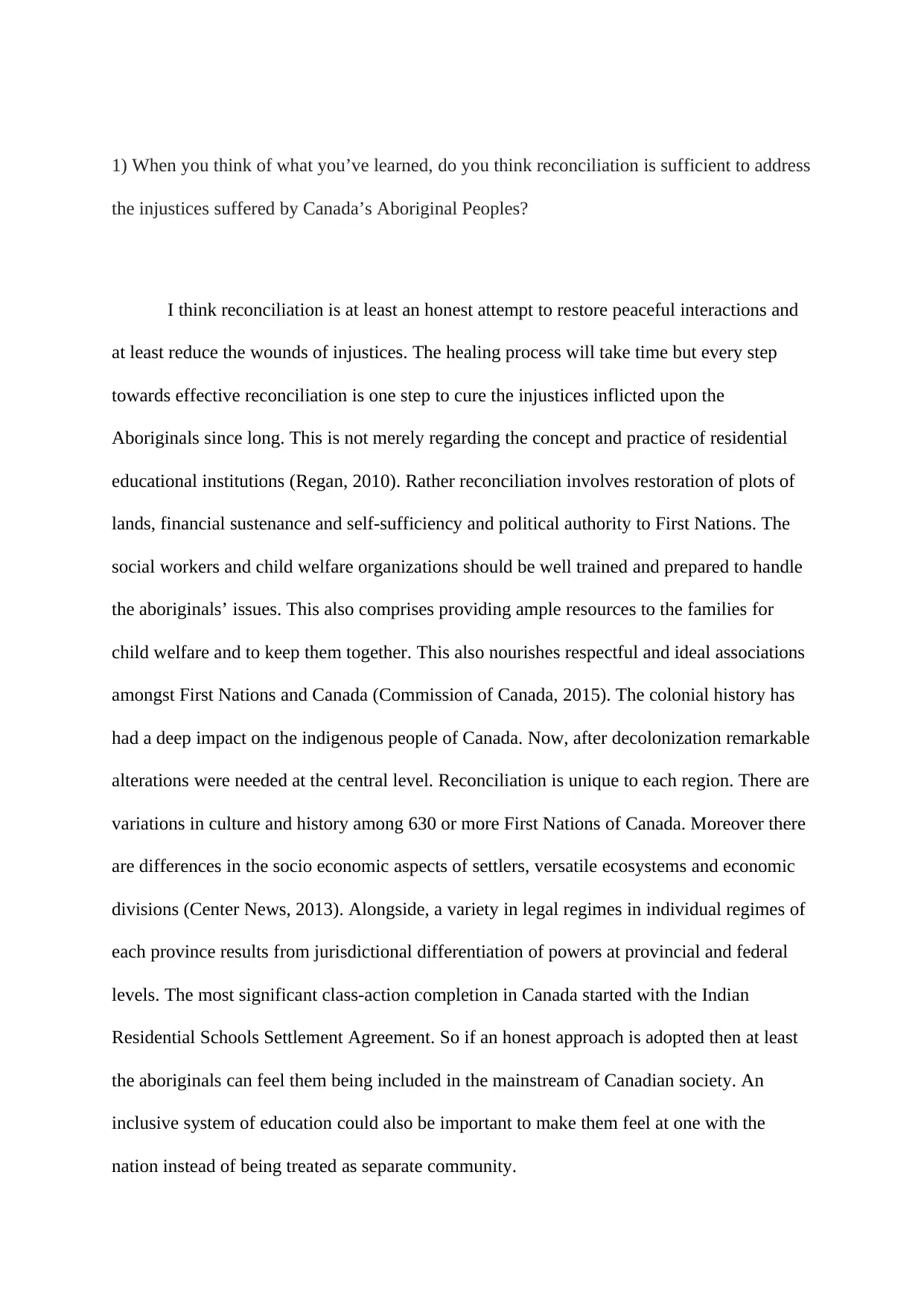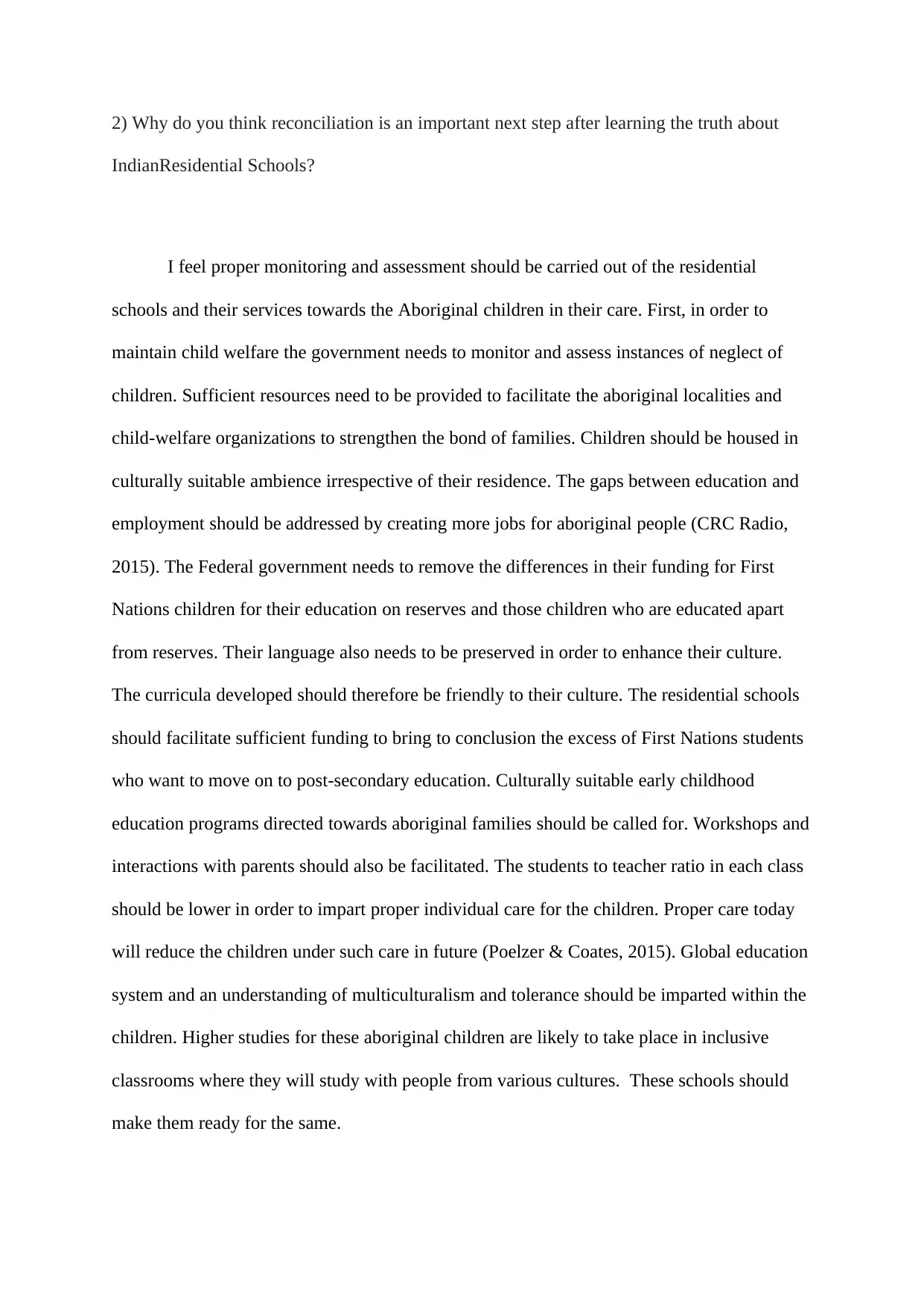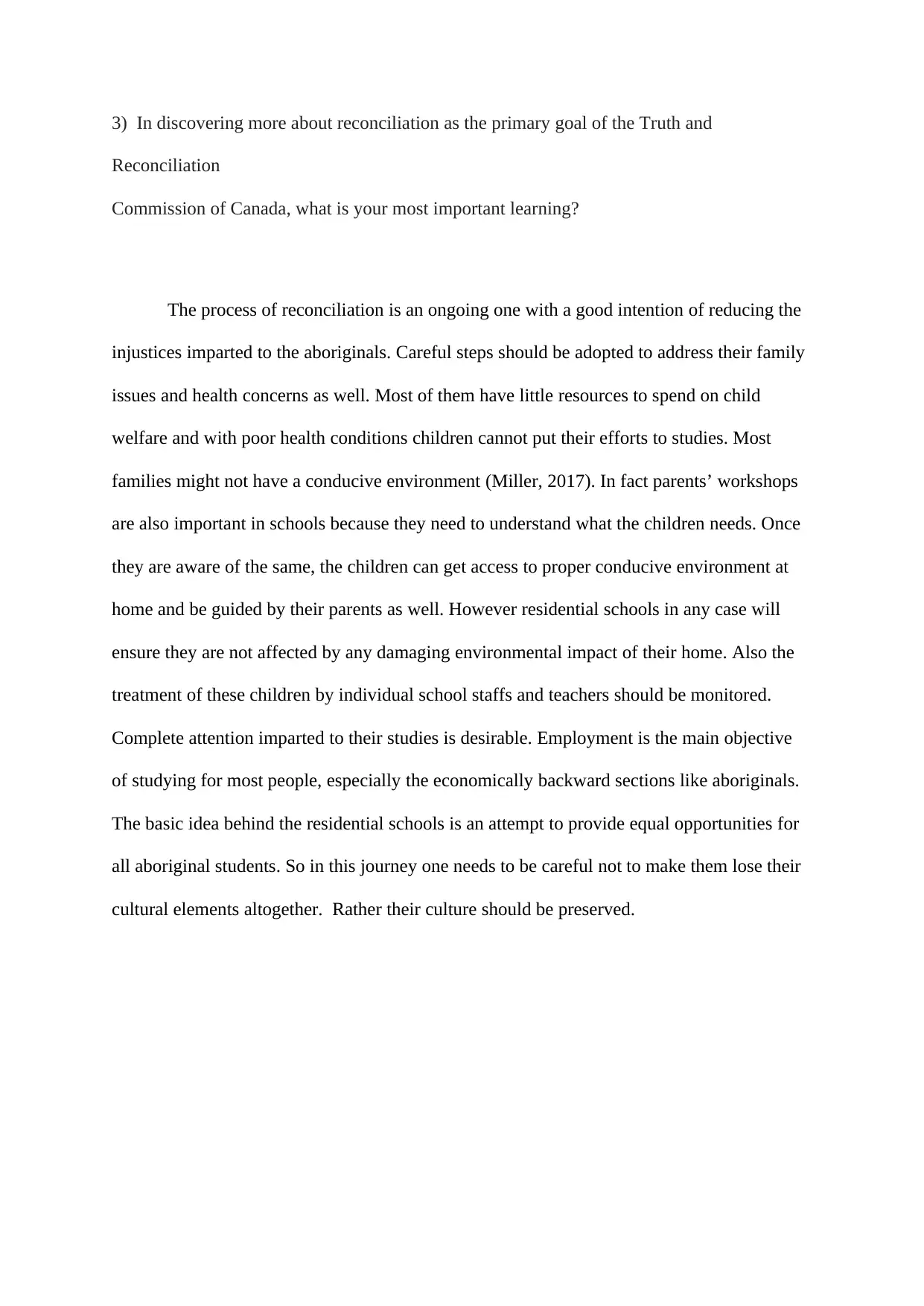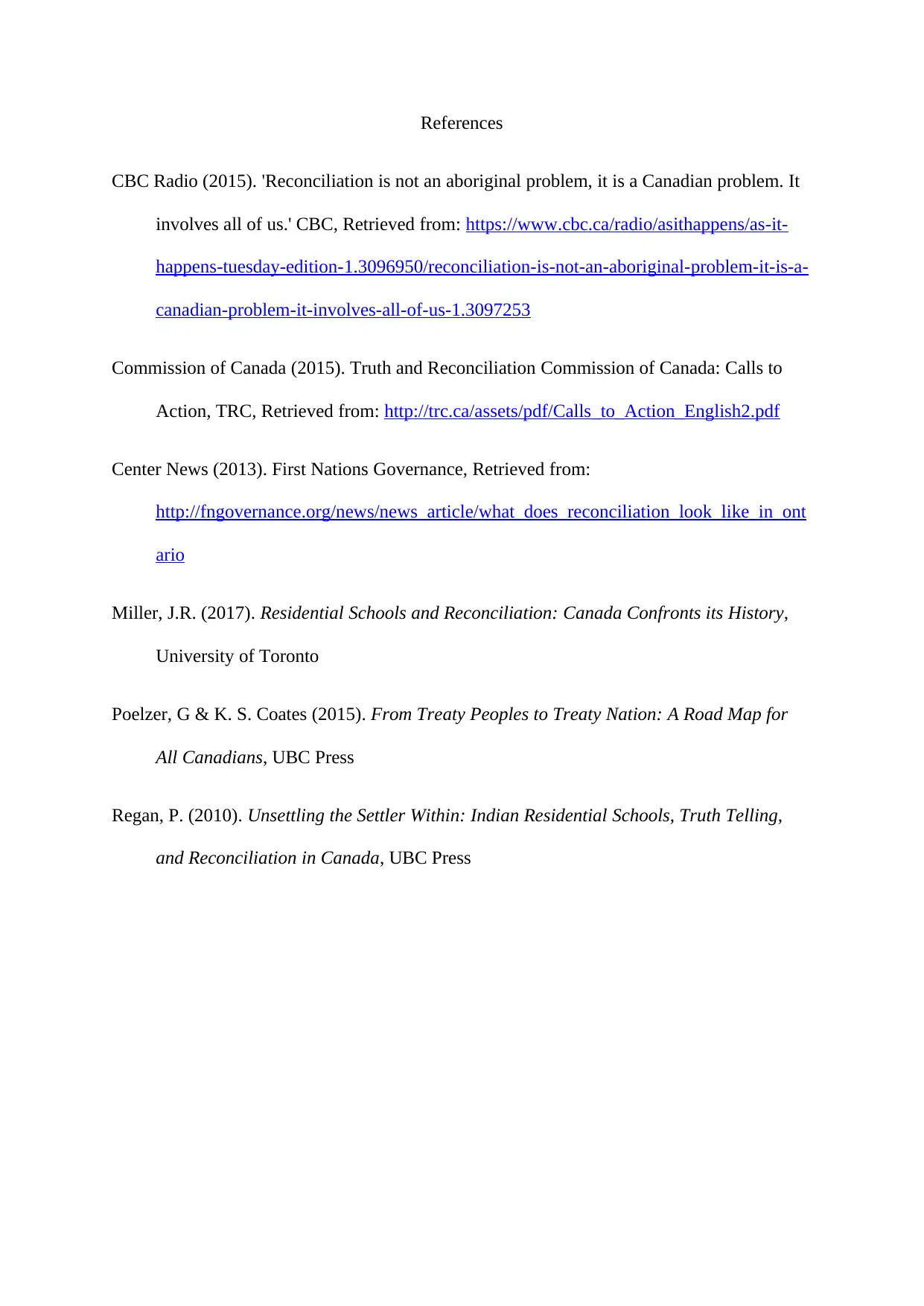Sociology 1017 (Winter 2019): Assignment on Reconciliation and Schools
VerifiedAdded on 2023/04/21
|4
|1075
|201
Homework Assignment
AI Summary
This assignment, prepared for Algoma University's Sociology 1017 course, delves into the complexities of reconciliation in Canada, specifically addressing the historical and ongoing impact of residential schools on Aboriginal Peoples. The student analyzes the sufficiency of reconciliation efforts, emphasizing the need for land restoration, financial support, and political authority for First Nations, alongside well-trained social workers and child welfare organizations. The assignment explores the importance of reconciliation as a crucial step after acknowledging the truth about residential schools, advocating for monitoring and assessment of these institutions, providing adequate resources for family support, and preserving Indigenous languages and culture. The student reflects on the Truth and Reconciliation Commission's goals, highlighting the need for addressing family issues, health concerns, and ensuring equal opportunities for all Aboriginal students while preserving their cultural heritage. The assignment references key documents and sources, including the Truth and Reconciliation Commission of Canada's Calls to Action and CBC Radio reports, to support the arguments presented.
1 out of 4








![[object Object]](/_next/static/media/star-bottom.7253800d.svg)